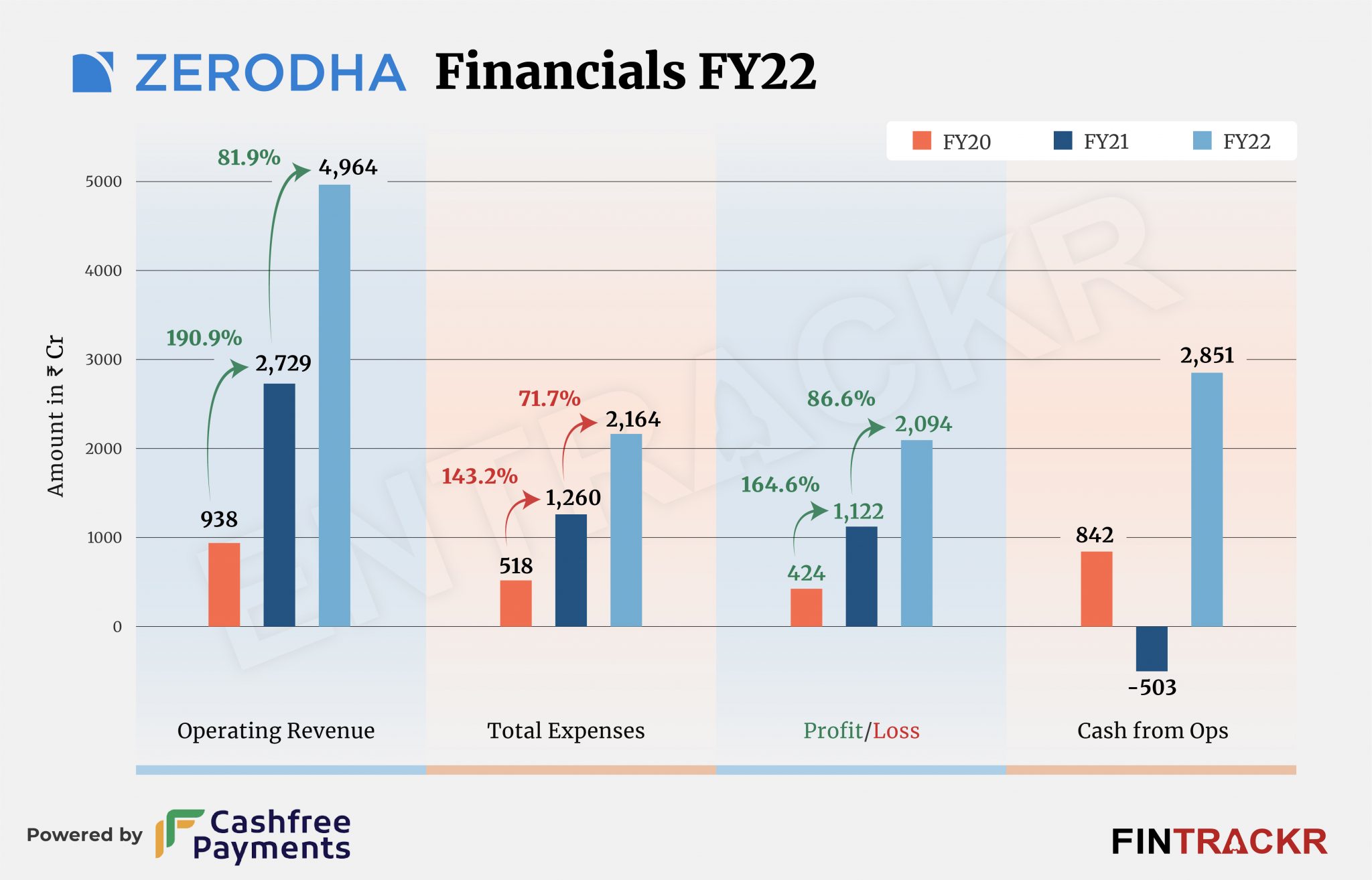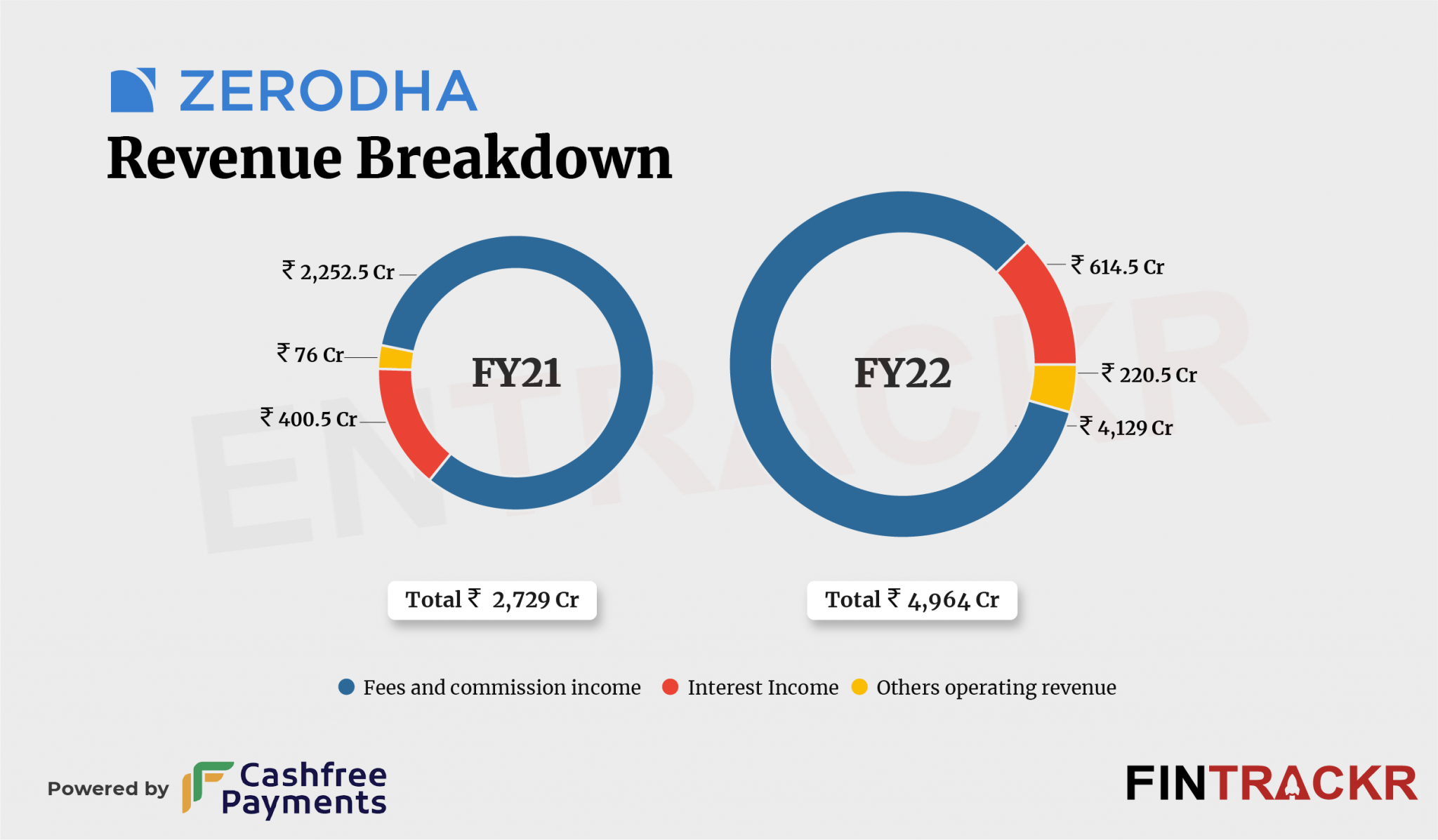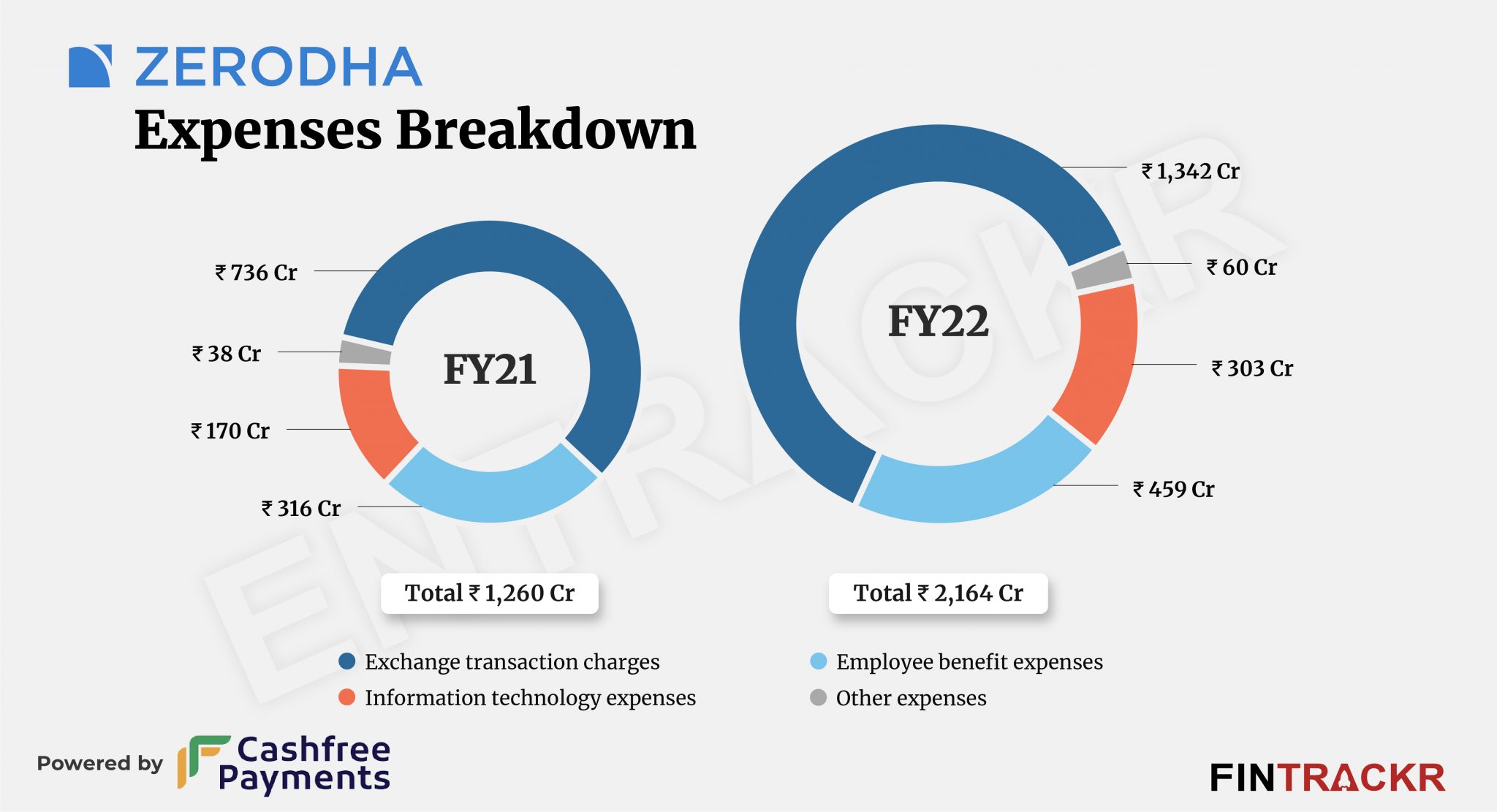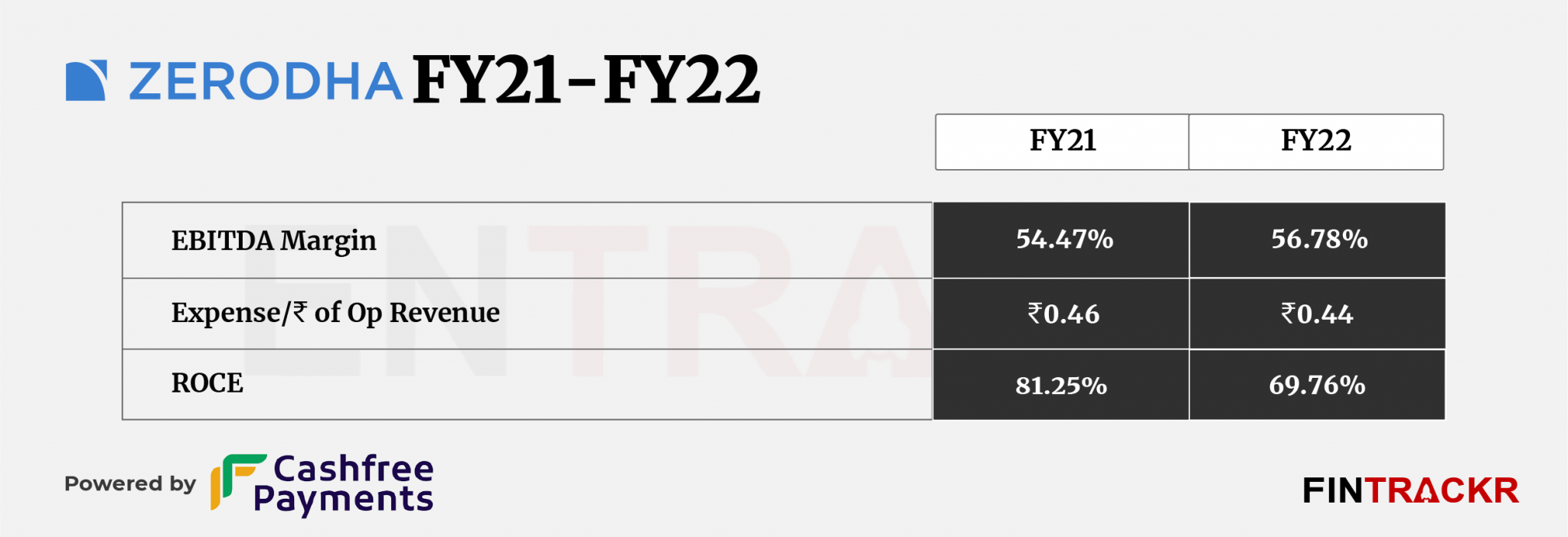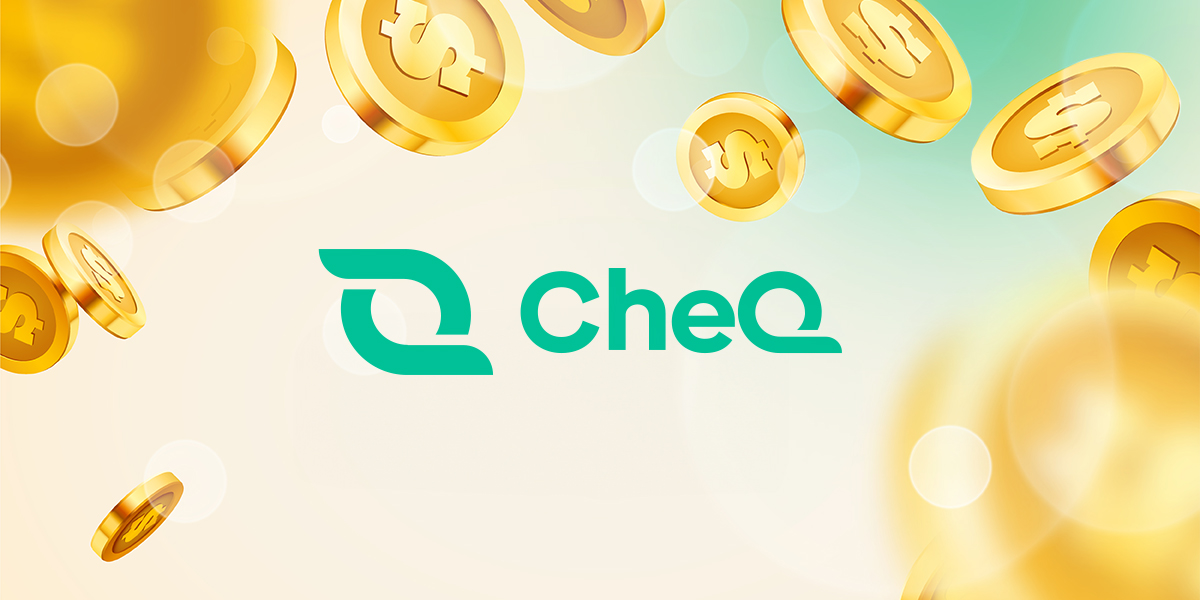If you are a stock broking firm or a fintech in India, fair warning. The next few lines could make you downright envious. Bootstrapped stock broking firm Zerodha continues its growth momentum in the fiscal year ending March 2022: its operating scale neared the Rs 5,000 crore mark. Meanwhile, its profit surged 86% during FY22.
Zerodha’s revenue from operations grew 82% to Rs 4,964 crore in FY22 as compared to Rs 2,729 crore in FY21, according to its consolidated annual financial statements with the Registrar of Companies (RoC).
Zerodha makes money from brokerage fees, the sale of its premium tech products such as Kite Connect API, user onboarding collections, and exchange transaction charges collected from clients on behalf of various securities exchanges. Collections from these services spiked 83.3% to Rs 4,129 crore in FY22 from Rs 2,252.5 crore in FY21.
The company’s interest income grew 43.4% to Rs 614.5 crore in FY22 while it also cornered Rs 220.5 crore from other operations which include dividend income and net gain on fair value changes.
On the expense front, Zerodha collects exchange translation shares from its clients on the trades made via its brokerage platform and disburses them to the respective securities exchanges. These payments accounted for 62% of the overall cost and inclined 82.3% to Rs 1,342 crore in FY22.
Spends on employee benefits expenses constituted over 21% of the total expenditure and surged 45.3% to Rs 459 crore in FY22. This cost also includes Rs 77.5 crore of share based payment to employees. To recall, Zerodha was planning for a Rs 200 crore ESOP buyback during FY22 at a self assessed valuation of $2 billion. In FY21, it bought back ESOP worth Rs 65 crore from its employees.
Information technology (IT) expenses increased 78.2% and stood at Rs 303 crore in FY22. In the end, its total expenditure soared 71.7% to Rs 2,164 crore in FY22 in contrast to Rs 1,260 crore in FY21.
Akin to its scale, the company’s profits grew 86.6% to Rs 2,094 crore in FY22 against Rs 1,122 crore in FY21. Moreover, Zerodha’s total reserves climbed to Rs 3,657 crore at the end of FY22.
Zerodha’s net cashflows from operations also came in at Rs 2,851 crore. Meanwhile, its EBITDA margin improved by 231 BPS to 56.78%. On a unit level, Zerodha spent Re 0.44 to earn a rupee of operating revenue.
Increase in the number of IPOs led to a higher number of daily average users for Zerodha during FY22. According to Chief executive Nithin Kamath, the company will grow slowly as there will be fewer IPOs over the next six months.
As per the EY (Ernest and Young) report, the number of Indian IPOs increased from 134 to 138, raising a total of $7.5 billion. However, the total proceeds plummeted 56% from $17.3 billion in 2021. Startup IPOs also declined from 11 in 2021 to merely two in 2022 amid the global IPO market slump. During FY22, Zerodha had around 9 million user base and 6.2 million active users. Upstox, one of the competitors, crossed the 10 million user base mark in May 2022. As per the company, 50% of 5 million users were active ones.
Zerodha has been in the news for being a breakout company having bootstrapped its way to profitability, unlike other startups in the country. Apart from healthy business practices, the pandemic also played a significant role in adding money to the company’s coffers as more young Indians turned to the public markets to make investments. In fact, Kamath claimed in December that the company’s profit had surged 5X since March 2022. Other factors have also contributed to this growth, according to Kamath, which include e-KYC, digital signatures, and UPI — all adding the ease to buy stocks online.
Kamath, besides leading an obviously well oiled and smart firm, has been well known to be noticeably conservative when it comes to projections, which the firm then proceeds to beat comprehensively. In his case, if the words are meant to make investors pause before throwing money at competitors, Zerodha’s actual numbers will continue to attract many hoping to do as well, or even a little less. The firm remains one of the biggest success stories in the last decade when it comes to the startup ecosystem. It’s the disruptor that has brooked no disruption.
Update: The story has been updated with new financial graph of Zerodha.



